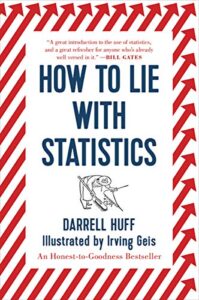A Thousand Brains by Jeff Hawkins
3/5
Review: "This is a helpful, introductory read on the workings of the human brain. I appreciated the insight into how building generative AI to replicate the function of the neocortex (without the complex interactions of the old brain) could be groundbreaking in the coming decades. However, it's clear that this is not a thorough scientific work but rather the beginning of a thesis that requires further scrutiny."

The WEIRDest People in the World by Joseph Henrich
5/5
Review: "I thought this book was excellent because it draws on a much broader sample of humanity than typical academic studies that focus only on North America. The author’s main argument is that the policies of the Catholic Church fostered an individualistic ecosystem conducive to productive growth—monogamy and family planning reduced clan influence and promoted trust and prosocial behavior. Additionally, the author is right to highlight the downsides of this psychological shift, including higher suicide rates and increased anxiety. As the world moves toward greater cultural homogeneity, with varying rates of progress, growth, and development, this book offers a compelling (though somewhat oversimplified) narrative about how we arrived at this point, tracing developments since 1500."
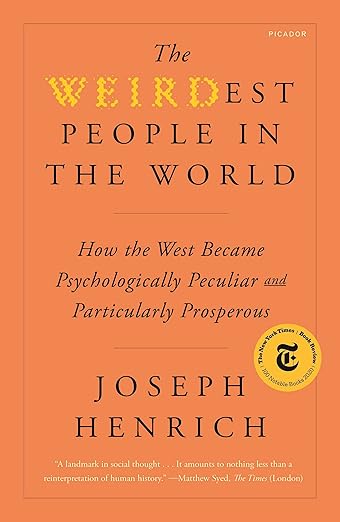
Democracy for Realists by Christopher Achen
2/5
Review: "Unsurprisingly, (1) most people know very little about politics and lack both the time and interest to become well-informed, and (2) voters struggle to accurately assess changes in their own well-being and attribute these changes to incumbents. After the author debunks the rational voter thesis, I found myself lost in the book, unable to follow the argument about how, why, or to what extent voters align with irrational beliefs. The complex datasets and esoteric academic political theory were too difficult for me to grasp."

Apocalypse Never by Michael Shellenberger
5/5
Review: "This is an enjoyable and well-written book. The central premise argues that alarmism diverts valuable resources from technological progress, poverty alleviation, and other improvements for humanity, while promoting inefficient (and perceived) zero-carbon energy production, often relying on natural gas as a backup. While the author makes a valid point, the argument occasionally devolves into ad hominem attacks on environmental extremists. There's no groundbreaking insight here, aside from the notion that nuclear energy offers an optimal solution to reducing the carbon footprint, with fewer unknown externalities (such as issues with photovoltaic supply chains or bird migrations disrupted by turbines) and reduced intermittency risks compared to wind and solar. Despite its flaws, I rate the book a 5 because the significant redirection of productive resources in the U.S. toward climate infrastructure deserves more scrutiny."

Baghdad City of Peace, City of Blood by Justin Marozzi
3/5
Review: “A city currently known for bloodshed, tyranny and hardship, Baghdad has endured centuries occupation, enlightening, progress and turbulence. It once was the envy of the world for its artistic, cultural and intellectual sophistication: a crossroads attracting merchants from East to West. The author elucidates the city's history of splendor, tumult and dichotomy, if you're prepared for a didactic read. I struggled at times to follow the various actors and power brokers in pre-Ottoman times: the book requires intense focus.

Filterworld by Kyle Chayka
1/5
Review: “Chayka argues that social media algorithms lead cultural trends to the lowest common denominator. He cites ubiquity of exposed-brick coffee shops and Scandanavian furniture. Perhaps as novice with Instagram and no TikTok, I failed to grasp why this form of media dissemination was more nefarious than MTV/Cable TV and its promulgation of preferences of a select few. The 90s represented the peak of cultural conformity, and we now trend toward more, not less, options for media consumption. A positive example has been the profileration of foreign-language content on Netflix and topically, a negative, presidential news outlets. ”

Last Days of the Ottoman Empire by Ryan Gingeras
4/5
Review: “Dense read on a poorly understood region/period (at least by me). The story starts with the rationale behind the fateful decision to support Germany and Austria-Hungary and ends with a break-up into independent states and colonial subjects, whose boundaries still plague the modern world. Gingeras weaves well together global nationalism trends, formation of the young turks, decolonization and a sultanate's decline. An engaging and insightful historical book.”

Rush by Todd Buchholz
3/5
Review: “Creative and innovative content on why the pursuit of success engenders happiness and, more broadly, productive societies. Buchholz commands a wide range of domain knowledge - scientific, economic, sociological - and elegantly illustrates complex concepts with memorable anecdotes. This books serves well to motivate our day-to-day pursuit of success; as for scientific explanations however, it falls well short of the mark.”
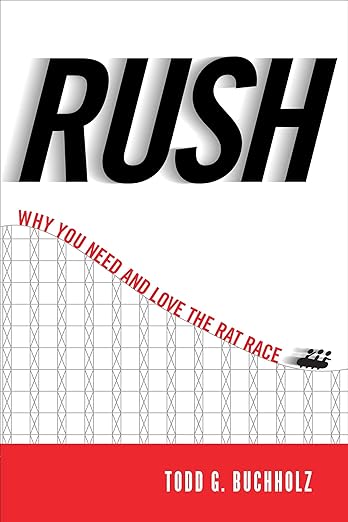
Wireless Wars by Jonathan Pelson
5/5
Review: “Superb historical overview of the cellular equipment vendor landscape. Huawei masterfully imitated, improved, machinated and now dominates the sector with the most advanced technology. This poses a significant political threat to Western countries, as Chinese technology can hold hostage national security. Pelson is light on modalities to regain leadership in 5G but applauds rip-replace programs to remove Huawei from US networks and to support Open RAN initiatives.”

Same as Ever by Morgan Housel
2/5
Review: “Underwhelming follow-up book to the Psychology of Money. This book lacks sufficient depth of business acumen to support its positions and instead focuses on long-tail extreme events, tied loosely to generalized human behavior patterns. Perhaps the best takeaway is the ability to craft stories remains one of life's most valuable skills, and one of Housel's best traits.”
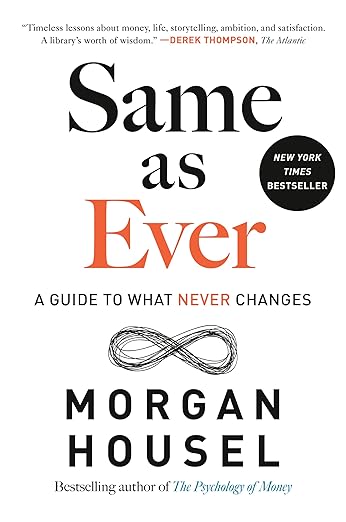
Poor Charlie's Almanack edited by Peter Kaufman
5/5
Review: “Timless classic with insight into investments, life and relationships. Compiled wisdom from speeches and interviews, woven together in themed chapters. While at times this book feels haphazard and incoherent, Munger's uncanny ability to distill investing behavior into pithy statements remains unparalleled and makes this an enjoyable read.”

Cable Cowboy by Mark Robichaux
4/5
Review: “Enjoyable book from 2002 on the emergence of cable television, its participants (i.e., cowboys), how it competed for viewers and shaped consumer behavior. Story focuses on John Malone and Bob Magness' construction of TCI into a dominant industry player. Insightful historical view on an industry undergoing similar disruption from streaming content and fiber overbuilders.”

Zero-Carbon Industry by Jeffrey Rissman
3/5
Review: “Educational book on the carbon emissions of leading industrial processes - e.g., steel, cement, chemical. The author outlines modifications requisite to convert in order to leverage renewable energy technology. In summary, we are farther away from decarbonizing industry, compared to passenger transport and electrical networks; however, the technology exists and improves yearly.”

The Smartest Kids in the World by Amanda Ripley
4/5
Review: “Enlightening story of 3 US exchange students in South Korea, Finland and Poland (top performers in international testing), comparing the differences in educational approach. The author provides a nice combination of theoretical explanations for performance and anecdotal, derived from the exchange students. She acknowledges the flaws in the testing regimes, as evidenced by the nefarious ramifications present in Korea, but highlights how various factors improve student experience: limited use of tech (improved quant skills); teacher prestige/training (more autonomy and in-classroom expertise); focus on sports (tangential, rather than core); parental involvement (academic, compared to social/PTA). The US outspends on education, yet underperforms. This book provides insight as to why.”
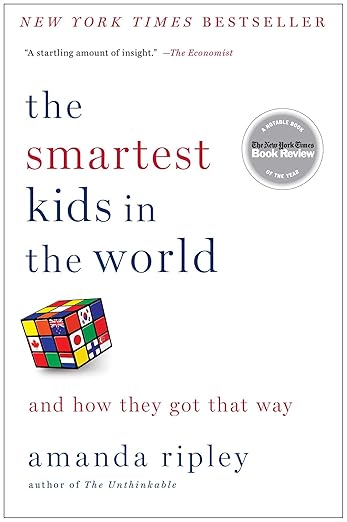
The Psychology of Money by Morgan Housel
5/5
Review: “Compelling and quick read utilizing hedonic psychology to explain decisions with money. This book reminded me of Thinking Fast, and Slow because it explains the cognitive basis for common human errors with money. Housel's not an economist, a financial wizard or an entrepreneur: he's an excellent writer and focuses on brevity and story-telling to aid readers' comprehension/recollection. Wealth = income - ego and happiness can be best explained by comparing expectations”

Shorting the Grid by Meredith Angwin
5/5
Review: “I assess this book in two ways - (1) it is an excellent overview of the evolution from vertically integrated utilities into regional wholesale power markets with complicated politics and layers. Angwin elegantly illustrates the hidden costs of renewable power and natural gas generation on rate increases, rate volatility and a reduction in grid resiliency. With wit and humor, she comprehensively reviews the New England grid dynamics, its flaws, its weaknesses and its politics. Assessment angle (2) her recommendation to improve the grid - more nuclear power - hardly inspiring or insightful.
In summary, 24/7/365 power will be more expensive and not ubiquitous in the future. On a positive note though, it "may" be greener.”

Elon Musk by Walter Isaacson
4/5
Review: “Excellent read on Musk - his childhood, adventures, companies, marriages and ambitions. While lengthy in content, the first half inspires, engages and motivates. The 2nd half (twitter, billionaire status, unchecked success) forebodes a Shakespearean tragedy, for which we're only at an intermission.”

Going Infinite by Michael Lewis
2/5
Review: “Light-hearted synopsis of the FTX ponzi scheme. While well-written and informative, it serves neither a comprehensive review of a financial fraud, nor an engaging biography. Part of me believes that this book started as a biography but served no purpose after FTX's ignominious decline.”

Your Face Belongs to Us by Kashmir Hill
3/5
Review: “Engaging read on Clearview AI and its use of accessible imagery on the web for any application, nefarious or judicial. At first glance, the ability to identify miscreants creates a more law-abiding, orderly society. Kashmir Hill weaves well into the narrative many downsides of a society without privacy, its potential (or inevitable) abuse, and how we may have inexorably started in a direction devoid of anonymity.”

The Identity Trap by Yascha Mounk
4/5
Review: “Engaging and pertinent book on how identity politics became a prominent feature in our everyday dialogue. Mounk explains the trap of broadly utilizing identity as a medium for social justice, which ignores (or obviates) reasoning, empathy and even fairness. At times, this reads as a cheat sheet for fatigued executives seeking counter-arguments to the prevailing educational aristocracy; however, I did not feel this diluted the content.”

When McKinsey Comes to Town by Walt Bogdanich
3/5
Review: “Well researched and enjoyable read aimed to shed light on the nefarious practices of this venerable institution. Behind corporate failures and autocratic regimes has existed McKinsey and for decades, its reputation, unscathed. This book explores how the corporate greed culture focused on income for ethically dubious work in a systematic way.”

Built to Move by Kelly Starrett
2/5
Review: “As a fan of Kelly Starrett and a faithful subscriber to the Ready State mobility program, I had high expectations for this book. It was a nice reminder to breathe through your nose, sleep 7+ hours, eat fruit and vegetables, stretch shoulders and hips regularly, walk frequently / sit infrequently. However, I didn't take away much new information.

Chip War by Chris Miller
5/5
Review: “Comprehensive account of the economic, geopolitical and technological aspects in the semiconductor industry. Chip War is a great introduction for the relative novice to understand the history of fabrication facilities, how Taiwan came to dominate and why this is so important today in US-China relations.”

The Impossible City by Karen Cheung
2/5
Review: “A Millennial's narrative who watches the free and international city in which she was born and raised slowly devolve into an oppressed society. I found this book self-absorbed and incoherent. It's structured as random stories intertwined with political events to juxtapose how her life corresponded with the changes in the city.”

Outlive by Peter Attia
4/5
Review: “Comprehensive and surprising assessment of the major causes of mortality. After months on the waiting list at Queens Public Library, I was pleased with the clear and actionable guide to longevity. A novel and refreshing perspective on healthy living and improving habits to promote vitality.”

The Economic Weapon by Nicholas Mulder
3/5
Review: “A historical assessment of sanctions during the period between WW1 and WW2. This is a superbly researched account on the interwar era and how this tool can have profound humanitarian implications. However, it's a difficult read even for someone keen on the subject matter.”

1946: The Making of the Modern World by Victor Sebestyen
5/5
Review: “A pivotal year in modern history in which countries were reborn and created, national and ideological boundaries were redrawn and people across the globe began to rebuild their lives. This fascinating and comprehensive book analyzes the post-war period not only in the expected places (Germany, UK, USSR, Italy) but also in less well-known (to me) ones such as Israel, Pakistan and Azerbaijan.”

The Almanack of Naval Ravikant by Eric Jorgenson
1/5
Review: “200 pages of platitudes you've heard during the span of the past 3 years from over-hyped podcasts, IG posts and twitter feeds. While motivating and moderately insightful on occasions, this book only offers up soundbites for you to sound intelligent in superficial conversation. Perhaps it should not surprise me that this book was recommended while at a bar.”

The Alter Ego Effect by Todd Herman
2/5
Review: “Great concepts and life advice diluted with banality. The author approaches this subject with too large of a canvas. Great to skim for motivation but not for a profound understanding.”

Blood and Oil by Bradley Hope and Justin Scheck
5/5
Review: “Captivating narrative on MBS' rise to power in Saudi Arabia and how he continues to transform the traditionalist country. One of the best books on the Middle East in recent years and how one person now controls the gulf's largest power broker.”

The Hungry Brain by Stephan Guyenet
4/5
Review: “I appreciated the novel perspective on how neurochemistry affects our eating behaviors. The book has practical tips for weight loss and healthy eating, but it is not a "diet book." The author approaches appetite, satiety, and overeating by analyzing our chemical responses to food.”
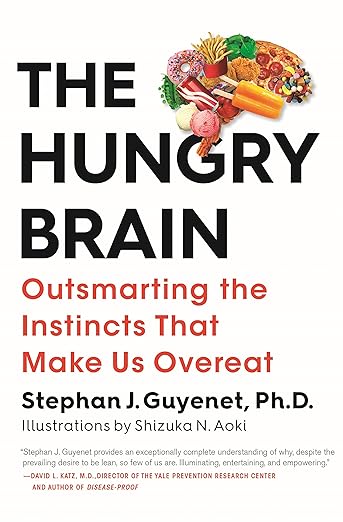
Guns, Germs, and Steel by Jared Diamond
5/5
Review: “Readable and informative review of 13,000 years of human history. Diamond draws upon several scientific disciplines to explain how environmental differences contributed to fates of ancient and modern civilizations.”

The Sun Also Rises
5/5
Review: “In a switch to fiction to lighten up content for the summer, I picked up this Hemingway classic. Despite vacuous characters (excluding the narrator), Sun Also Rises paints a portrait, at times glamorous, of living abroad in a different era. He aims to capture the moral ambiguities and human foibles of his generation and in particular his cohort. The musings still feel relevant today.”
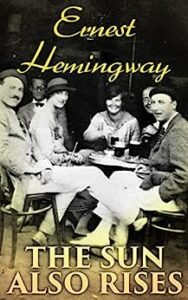
Life is Hard by Kieran Setiya
2/5
Review: “In what I expected to be a pleasant reprieve from self-help bromides, I did not find new perspective from this assessment of MIT professor of philosophy. Layout of the chapters into pain, grief, injustice, etc, worked well but I found the author's personal narrative incongruous with explanations of ancient philosophers and incoherent with his fundamental arguments.”
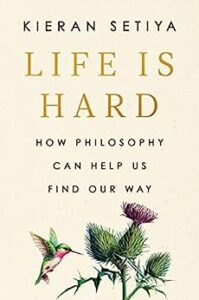
The Body Keeps the Score by Bessel Van Der Kolk
4/5
Review: “Intense read on the physiological/neurological effects of trauma, particularly childhood trauma. Harrowing and disturbing in parts, the book tracks how trauma affects the functioning of the brain in lasting ways, breaking down the normal coping and processing functions. I particularly appreciated the criticism of existing pharmaceutical psychological diagnostic and treatment practice, which only mask symptoms. The author’s work remains unfinished, but he provides a glimpse into treatments more focused on addressing trauma in unique ways that allow the sufferer to progress toward “normal” behavior. An readable and insightful book.”
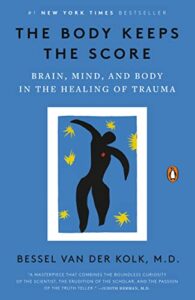
The First Cell by Azra Raza
5/5
Review: “While the style of this book at times appears inconsistent (switching between expository, narrative and persuasive, almost simultaneously), I found it to be a captivating story of how we (the US) diagnose and treat cancer. The author elicits the question of when to stop treating incurable conditions and how our medical system can organize to identify malignancies earlier.”
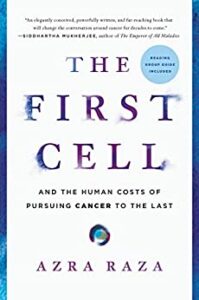
I Don't Want to Talk About It by Terrence Real
4/5
Review: “A psychiatrist's perspective on behavior patterns, normally characterized as self-sabotage in men: e.g., workaholism, alcoholism, rage, attributed to untreated depression. Author elucidates how gender roles contribute and perpetuate this legacy of male depression. I appreciated reading about this little-known subject and found it enlightening.”
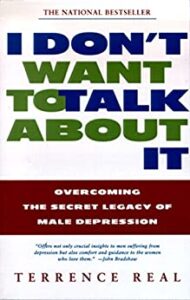
The Talent Code by Daniel Coyle
4/5
Review: “Deep practice, ignition and master teaching. Enjoyable and inspirational with examples in music, literary, sports and education. I found the deep practice portion particularly insightful with scientific explanations on myelin formation to support exceptional performance. ”
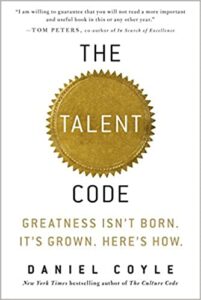
Breath: The New Science of a Lost Art by James Nestor
4/5
Review: “Insightful piece focused on first-person experiences with sporadic scientific support. Occasionally succumbs to hyperbole but overall good summary on the benefits of a improving your breathing.”
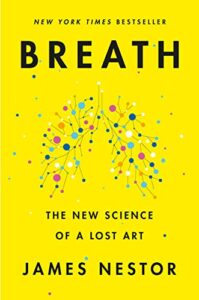
The Color of Law: A Forgotten History of How Our Government Segregated America by Richard Rothstein
3/5
Review: “Informative historical summary of the suburban development in the early-to-mid 20th century and how core aspects of these violated the bill of rights for Black Americans. Heavy on invective and sadly a story of prejudicial politics.”
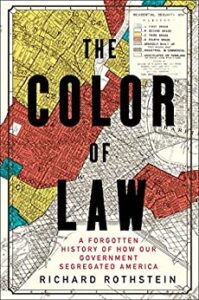
Why Buddhism is True by Robert Wright
5/5
Review: “Evolutionary psychology and neuroscience perspective on the tenets of Buddhism and how to utilize its teaching for a happier life. Helpful to internalize how our minds are wired for anxiety, depression, anger and greed, and how to mitigate.”
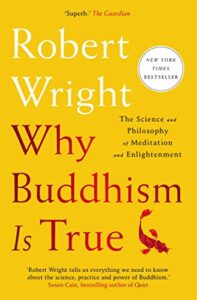
Why We Sleep: Unlocking the Power of Sleep and Dreams by Matthew Walker
4/5
Review: “Informative read on our most basic activity. Explanations ranging from how sleep enriches mental functions, recalibrates emotions and regulates appetite. Improves perspective if we prioritize other activities versus eight hours of sleep”
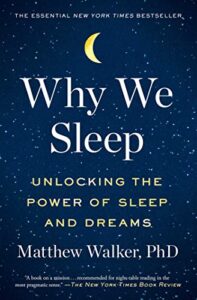
Business Adventures: Twelve Classic Tales from the World of Wall Street by John Brooks
3/5
Review: “Collection of essays from the 60s ranging from insider trading, stockholder meetings, trade secrets and Xerox to the federal income tax. Promoted heavily by Bill Gates, this book was marginally insightful but lacked profundity. The stories lend toward aphorisms and platitudes of a different era; however, importantly, the themes remain relevant today.
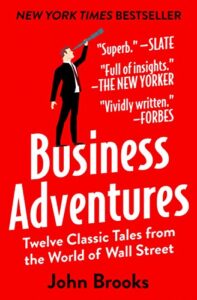
The Grid: The Fraying Wires Between Americans and Our Energy Future by Gretchen Bakke
5/5
Review: “Detailed review of the nation’s electrical grid and its financial, legal, regulatory, and environmental complexities. Great overview for an understanding what needs to be accomplished (and changed) to permit decarbonization of production and the shift to EV.”
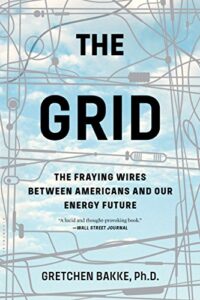
Don't Trust Your Gut: Using Data to Get What You Really Want in Life by Seth Stephens-Davidowitz
4/5
Review: “Our minds are designed to process emotions, to engage in storytelling and to pursue self-interest. Modern life enables us to interact on a much wider scale than our evolutionary intuition envisaged. Therefore, our gut frequently leads us astray and inhibits data-based decision-making. The author explains several humorous and unexpected outcomes on how our gut instinct is wrong, including who to marry, best places to raise children, college scholarships and career trajectories.”
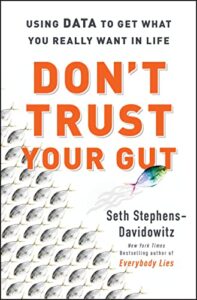
Good Strategy Bad Strategy: The Difference and Why It Matters by Richard Rumelt
4/5
Review: “Pragmatic tools and important distinctions between strategy and project plans. Examples from business, military and non-profit both successful and abhorrent to elucidate key concepts”
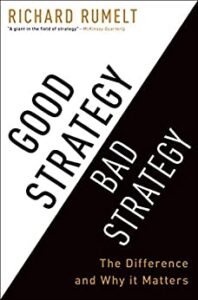
The World for Sale by Javier Blas
4/5
Review: : “Enlightening read on the large commodity houses (Glencore, Vitol, Trafigura) rarely covered in traditional news outlets. I found the subject matter broader and more comprehensive than the King of Oil (only on Marc Rich) and particularly enjoyed the 50-year historical synopsis how these companies overcame dissipating information advantages, built economies of scale and expanding into upstream production. These secretive companies remain ever more important in the volatile macro landscape”
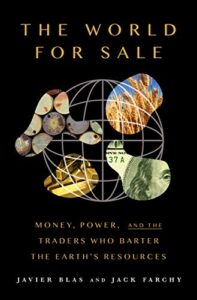
The Nineties: a Book by Chuck Klosterman
4/5
Review: : “Entertaining read from a gifted essayist. After spending 10+ years living outside the US, I appreciated the positive, nostalgic view of this decade, with references to Tarantino, Friends, Nirvana, Bill Clinton woven together in a narrative illustrating how we controlled technology (not vice versa) and when US politics remained vacuous, rather than acrimonious”
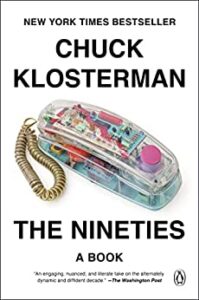
How to Lie with Statistics by Darrell Huff
3/5
Review: “Brief read on how distorted graphs and biased samples permit misleading polemic. While this book does not shine new light or provide a unique perspective, I continue to believe humans do not naturally interpret numbers and datasets particularly well (in casual, or 90+% of actual, settings). It’s important to recognize where we are weak and how we can be manipulated by nefarious/motivated actors”
